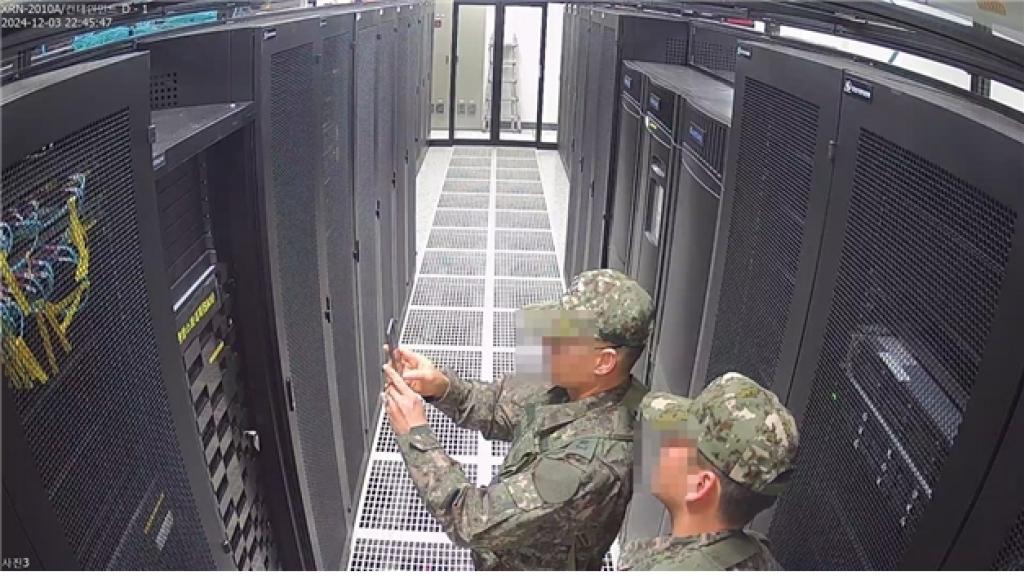South Korea: Motive emerges for President Yoon’s failed self-coup

[Editor’s note: This article as written just prior to the mass mobilisation held in Seoul on December 6 and failed impeachment vote against President Yoon Suk Yeol later that day. A follow up article covering these events can be read here while an initial article on Yoon’s self-coup can be read here.]
More details continue to emerge regarding the motivation behind President Yoon Suk Yeol’s spectacular failed self-coup on December 3.
A potential motive was revealed on December 6 when footage was released of the Korean Central Intelligence Agency (KCIA) deputy director leading troops into the National Election Committee (NEC) headquarters amid Yoon’s declaration of martial law.
According to Yoon’s defense minister, Kim Yong Hyun, the purpose of the attack was to secure evidence of supposed electoral fraud that had occurred in the April general election. Yoon’s People Power Party (PPP) suffered a huge defeat in those elections, with its parliamentary bloc reduced to a minority.
Extreme right-wing YouTubers had circulated fake news of the NEC committing electoral fraud. Though clearly false, it appears Yoon — trapped in his extreme right mindset — and his co-conspirators believed the fake news was real and used it as a pretext for their attempted self-coup.
While providing some motivation for the plot, it does not make it any less insane.
PPP: Oust Yoon or commit political suicide?
In a speech to the nation on the morning of December 7, Yoon said he wanted to “sincerely apologise to the people who were shocked” by his actions, adding he would “leave it up to [the PPP] to stabilise the political situation in the future, including my term of office.” Yoon also ruled out any further attempt to impose martial law.
Having expressed opposition to impeachment yesterday, some PPP leaders, in particular party leader Han Dong-hoon, shifted positions today — most likely after finding out they were among those on a list of people to be arrested had the self-coup succeeded.
Others on the arrest list included Korean Confederation of Trade Unions (KCTU) leader, judges from the Supreme Court of Justice, an anti-government broadcaster, and a civil society organisation leader. Also on the list were several politicians, including all parliamentary leaders except the House Speaker, who heads the pro-Yoon faction within the PPP.
Han briefly met with Yoon on the afternoon of December 6 to encourage him to resign, with two other PPP leaders also visiting him to relay the party’s general mood in support of his resignation. But no agreement was reached.
Han is now seeking to persuade PPP MPs to support impeachment. So far two PPP MPs have expressed their support for such a course, but at least eight PPP MPs are needed to secure the required two-thirds vote for impeachment.
Meanwhile, opposition MPs — who rejected Yoon’s apology — and parliamentary staffers remain inside parliament, with no plans to leave in case Yoon tries anything again. Parliament will reconvene on December 7 at 5pm to see if enough votes can be mustered for impeachment.
For now, nothing is certain about Yoon’s fate. But with the United States government and international media outlets joining in the choir of criticism against Yoon’s crazy behaviour, it seems his days are numbered. What remains to be seen is how far the PPP is willing to go in terms of committing political suicide by continuing to stand by Yoon.
People have their say
About 50,000 protesters gathered to pressure the PPP into voting for impeachment on December 6.
Protest organisers expect the December 7 rallies — set to kick off at 1pm — will see about 200,000 take to the streets.
KCTU leaders have declared an indefinite general strike. While the KCTU says it will organise some 200,000 workers to go on strike nationally, so far the reach of its call has been limited. A protest organised by the KCTU yesterday in front of the PPP headquarters mobilised about 500 people.
Several unions, such as the railway union, have taken the opportunity to go on strike for their own demands. The Korean Metal Workers’ Union (KMWU) held a national 2-hour strike over December 5 and 6, claiming that at least 70,000 workers went on strike the first day.
Won Youngsu is an activist, Marxist and labour studies researcher. He is the Director of Pnyx – Institute of Marxist Studies in Korea.